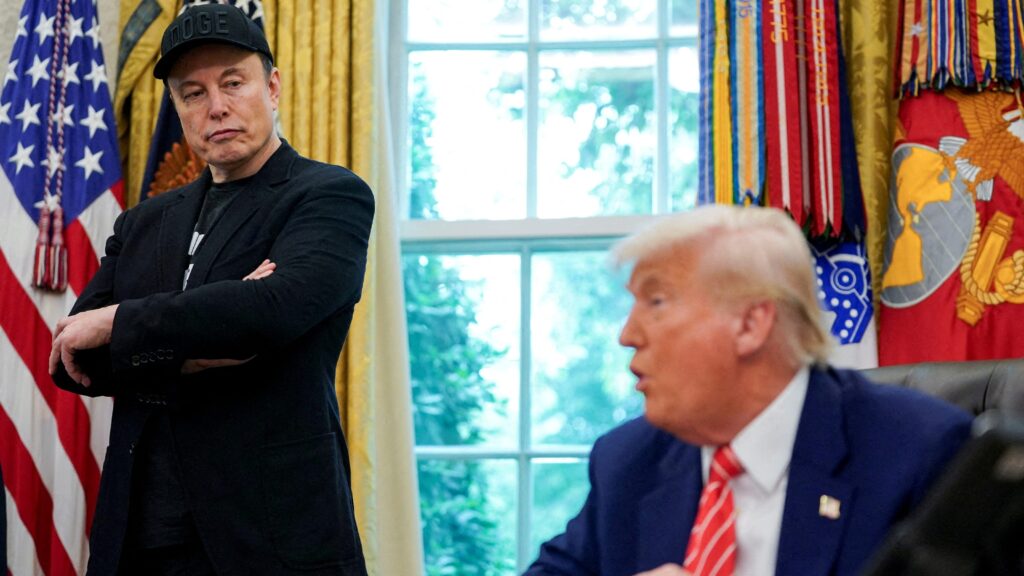President Donald Trump’s approval ratings have seen a slight decline recently, attributed to his immigration policies, tariff threats towards American companies like Apple and Mattel, and a public feud with tech mogul Elon Musk. The administration’s controversial revival of a travel ban affecting foreign nationals from 12 countries, along with increased ICE arrests at immigration courts in cities like Phoenix, have further fueled the backlash.
The public feud between Trump and Musk has captured social media attention, with Musk criticizing Trump’s spending bill and Congress. Despite legal questions surrounding Trump’s authority to impose tariffs unilaterally, he continues to threaten tariffs on prominent American companies.
The impact of these events on Trump’s approval ratings has been notable. Surveys from The Economist, Rasmussen Reports, Morning Consult, Gallup, Reuters/Ipsos, and American Research Group provide varying perspectives on Trump’s favorability, with approval ratings ranging from 41% to 50%. Comparisons with past presidents highlight the fluctuating nature of approval ratings, with Trump’s first-term average at 41%.
Presidential approval ratings serve as a crucial metric in assessing public sentiment towards the administration, influencing electoral outcomes and policymaking. However, in today’s polarized political landscape, some analysts question the utility of these ratings due to extreme partisanship. Despite this, approval ratings remain a significant barometer of presidential performance and public perception.

